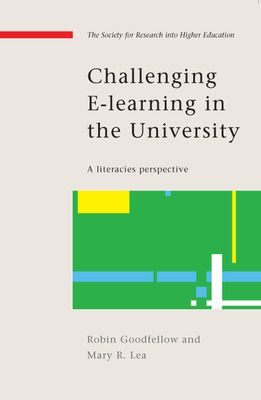Challenging e-Learning in the University
- Access the eBook anytime, anywhere: online or offline
- Create notes, flashcards and make annotations while you study
- Full searchable content: quickly find the answers you are looking for
Introduction
Approaches to learning: Developing e-learning agendas
Learning technologies in the university: From ‘tools for
learning’ to ‘sites of practice’
The social literacies of learning with technologies
The ‘university’, ‘academic’ and ‘digital’ literacies in e-learning
A literacies approach in practice
The literacies of e-learning: Research directions
References
Index
Ilana Snyder, Monash University
"This book offers a radical rethinking of e-learning … The authors challenge teachers, course developers, and policy makers to see e-learning environments as textual practices, rooted deeply in the social and intellectual life of academic disciplines. This approach holds great promise for moving e-learning past its focus on technology and 'the learner' toward vital engagement with fields of inquiry through texts."
Professor David Russell, Iowa State University
Challenging e-learning in the University takes a new approach to the growing field of e-learning in higher education. In it, the authors argue that in order to develop e-learning in the university we need to understand the texts and practices that are involved in learning and teaching using online and web-based technologies.
The book develops an approach which draws together social and cultural approaches to literacies, learning and technologies, illustrating these in practice through the exploration of case studies.
It is key reading for educational developers who are concerned with the promises offered, but rarely delivered, with each new iteration of learning with technologies. It will also be of interest to literacies researchers and to HE policy makers and managers who wish to understand the contexts of e-learning.

